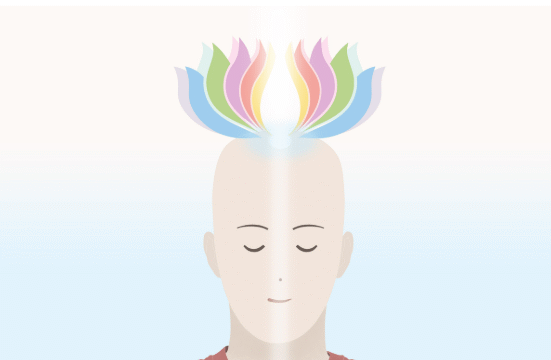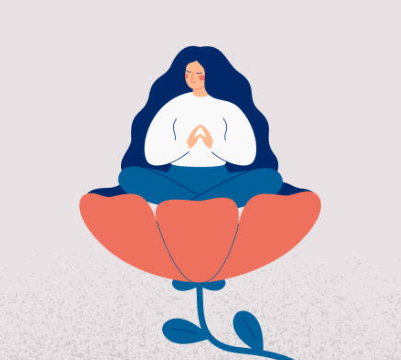A restful night’s sleep is one of the simplest ways to improve your overall well-being, yet it often feels elusive in the midst of modern life. Many people struggle with restless nights, tossing and turning, or waking up feeling groggy. Learning to sleep deeply and wake up feeling energized is not only about the hours you spend in bed, but also about the quality of your sleep and the habits you cultivate throughout the day. By understanding how your body and mind prepare for rest, you can create a rhythm that promotes rejuvenating sleep and vibrant mornings.
One of the most important factors in achieving deep sleep is establishing a consistent sleep schedule. Your body has an internal clock, known as the circadian rhythm, which responds to cues from light, activity, and even mealtimes. Going to bed and waking up at the same time each day helps regulate this rhythm. Even on weekends, try to maintain a schedule that allows your body to predict when rest will occur. This consistency not only improves your ability to fall asleep but also enhances the depth of your sleep cycles, allowing your mind and body to fully recharge.
Creating a sleep-friendly environment is equally important. The bedroom should be a sanctuary dedicated to rest. Keep your sleeping area cool, dark, and quiet, as temperature, light, and noise can all disrupt your natural sleep patterns. Blackout curtains can prevent unwanted light from disturbing your rest, while a fan or white noise machine can help mask background sounds. Comfort also matters, so invest in a supportive mattress and pillows that suit your preferred sleeping position. A space that invites relaxation encourages your body to enter a state of calm more quickly, paving the way for deeper sleep.
Your daily habits significantly impact how deeply you sleep at night. Physical activity is a natural promoter of restorative sleep. Engaging in regular exercise, whether it is walking, yoga, swimming, or strength training, helps reduce stress and encourages the body to enter deeper stages of rest. Timing, however, plays a role; intense workouts too close to bedtime can be stimulating, making it harder to fall asleep. Aim to complete vigorous exercise at least a few hours before you plan to go to bed, while gentle stretching or mindfulness exercises can be effective even later in the evening.
Diet and hydration also affect sleep quality. Caffeine and alcohol, although common in daily life, can interfere with your body’s ability to achieve deep sleep. Caffeine stimulates the nervous system and can linger in your system for several hours, so it’s best to limit consumption in the afternoon and evening. Alcohol, while sometimes making it easier to fall asleep initially, disrupts sleep cycles, reducing the proportion of restorative deep sleep. Additionally, heavy meals late at night can cause discomfort or acid reflux, further interrupting rest. Instead, opt for lighter, balanced evening meals and stay hydrated, but avoid excessive fluids right before bed to minimize nighttime awakenings.
Mental relaxation is another essential element. In our fast-paced world, it is easy to carry stress and worry into the night, which can prevent deep sleep. Developing a calming pre-sleep routine helps signal to your body that it is time to wind down. Activities such as reading, meditative breathing, gentle stretching, or listening to soft music can ease tension. Avoid screens and bright lights during this time, as the blue light emitted by phones, tablets, and computers suppresses melatonin, a hormone critical for sleep. Creating a ritual around your bedtime encourages both the mind and body to prepare for uninterrupted rest.
The practice of mindfulness before bed can also improve sleep quality. Mindfulness encourages present-moment awareness, reducing anxious thoughts that often interfere with sleep. Simple techniques, such as focusing on your breath, noting sensations in the body, or mentally scanning from head to toe, can help release tension and foster a sense of peace. Journaling before bed, writing down thoughts or gratitudes, can further clear the mind and prevent nighttime rumination. These practices help the nervous system transition into a state conducive to restorative deep sleep.
Tracking and understanding your sleep patterns can provide valuable insight into how well you are resting. Sleep apps and wearable devices can monitor sleep duration, awakenings, and stages of sleep, allowing you to see what habits or environmental factors might be enhancing or disrupting your rest. While data alone is not a cure, it can guide adjustments to your daily routine, bedtime habits, and environment. Over time, these small changes can add up, leading to longer, deeper sleep and more consistent mornings where you wake feeling refreshed.
Waking up feeling energized is closely tied to the way you end and begin your day. Exposure to natural light in the morning helps reset your circadian rhythm, signaling to your body that it is time to be alert. Gentle movement upon waking, such as stretching or light exercise, encourages circulation and reduces grogginess. Avoiding the temptation to hit the snooze button repeatedly is also crucial; fragmented sleep in the early morning can leave you feeling more tired than if you woke at your scheduled time. By aligning your wake-up routine with your body’s natural rhythms, you reinforce the cycle of deep sleep and rejuvenation.
It is also helpful to manage your energy throughout the day to support nighttime rest. Avoiding prolonged periods of sedentary behavior, maintaining balanced nutrition, and taking breaks to relax and recharge all contribute to better sleep. Stress management during the day reduces the mental load carried into the evening, making it easier to slip into deep sleep. Your daytime choices—work habits, activity levels, and stress responses—directly impact the quality of your nights and, in turn, how energized you feel in the morning.
Achieving deep sleep and waking up refreshed is not an instant transformation but rather a gradual process of cultivating supportive habits. It involves a holistic approach: establishing a consistent schedule, creating a calming environment, engaging in healthy physical and mental practices, and aligning your daily lifestyle with your body’s natural rhythms. By prioritizing both your sleep and overall well-being, you empower yourself to experience nights of true restorative rest and mornings filled with energy, focus, and vitality.
Deep sleep is not just a luxury; it is a necessity for a healthy, vibrant life. When you commit to nurturing your body and mind through intentional sleep habits, the benefits extend far beyond waking up energized. Your mood, cognitive function, immune system, and even long-term health are all enhanced by consistent, restorative rest. Remember that small, intentional steps taken consistently yield the most profound results. Each night offers an opportunity to recharge, heal, and prepare for the day ahead. By valuing your sleep and cultivating the right environment and habits, you can enjoy the transformative power of deep, energizing rest.






